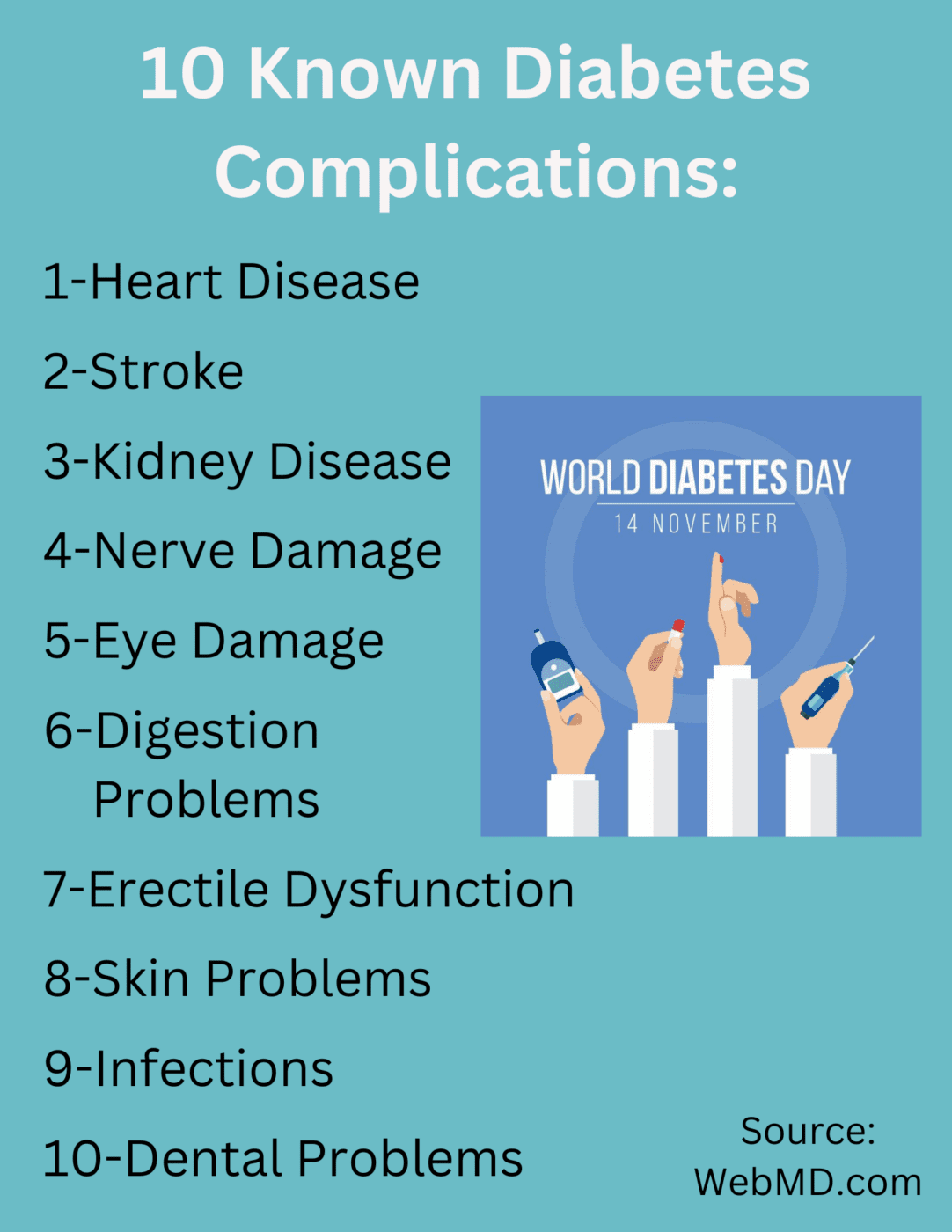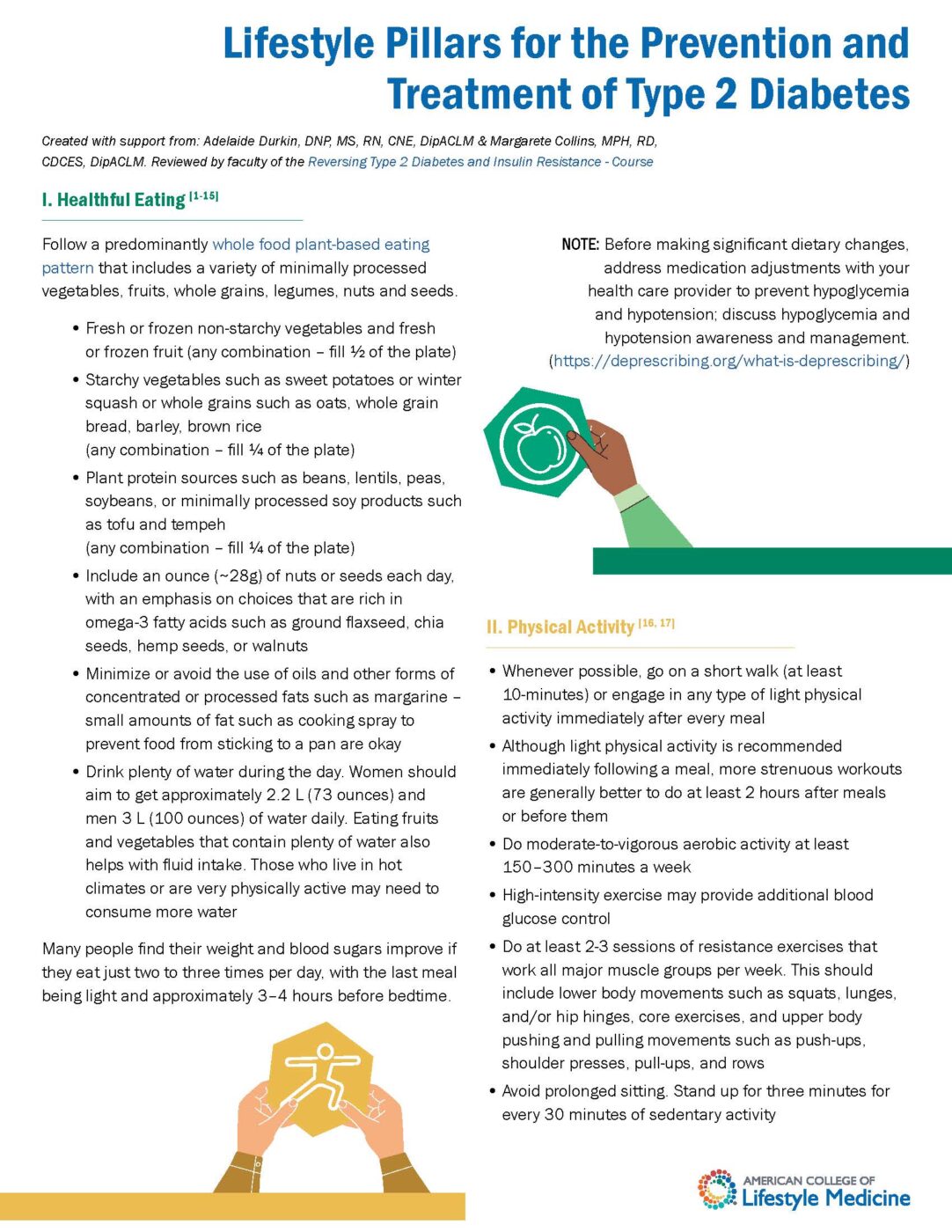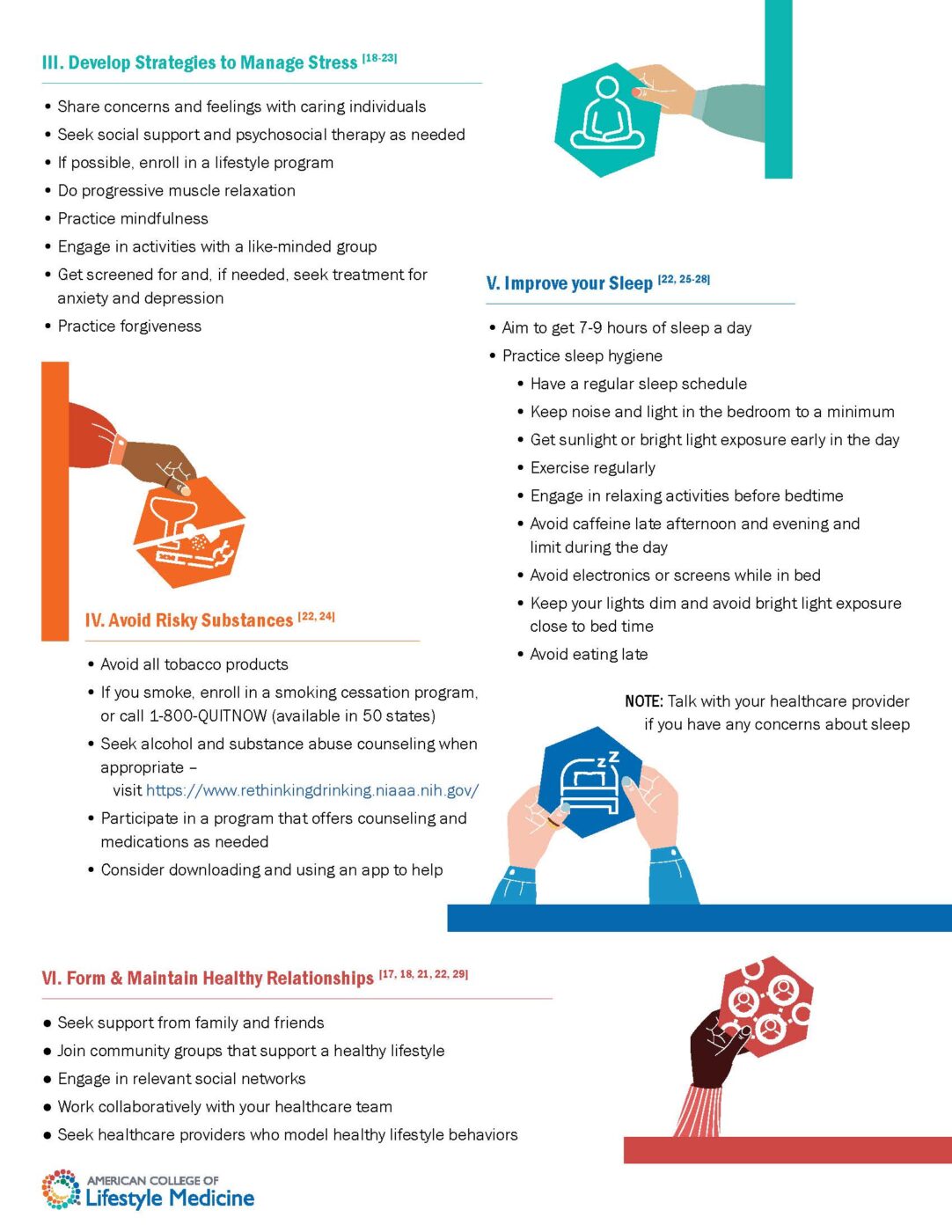Celebrating World Diabetes Day – Embracing Hope for a Healthier Future

By Dr. Adelaide Durkin, Kettering College Nursing Professor
November 14, 2024 —World Diabetes Day was established in 1991 as a joint effort of the International Diabetes Federation and the World Health Organization to raise awareness about diabetes. It is celebrated annually on November 14, the birthday of Frederick Banting, who co-discovered insulin in 1922.
World Diabetes Day shines a spotlight on the millions of people living with diabetes worldwide, and this year’s theme, “Breaking Barriers, Bridging Gaps,” embodies the hope for a future where diabetes prevention, management, and even remission, become realities for all. 1 This article starts with the inspiring journeys of two individuals- one with Type 1 and another with Type 2 diabetes – who have found hope and taken control over their health, demonstrating that there are effective ways to manage and reverse the trajectory of this condition.
A Story of Resilience: Taylor’s Journey with Type 1 Diabetes
Taylor Connor’s journey with Type 1 diabetes (T1D) is a testament to the power of perseverance and hope. Diagnosed with T1D at 20, Taylor’s A1c levels peaked at 15% (normal range= 4-5.6% ), a level associated with high risks of severe complications. She faced many barriers to maintaining her blood sugar levels —some personal and others related to her environment.
Yet, after years of managing her health ineffectively, Taylor committed to turn things around. In 2016, she began using an insulin pump and embraced a healthy lifestyle. By 2022, her A1c was at an all-time low of 6.4%. This success empowered her to pursue a career in healthcare, and today, she works as a nurse at UMass Memorial Health, aspiring to become a diabetes educator. Taylor’s journey shows that it’s never too late to take control. Click here for the full story.
Marc’s Path to Remission from Type 2 Diabetes
In 2009, Marc Ramirez a former U-M football player, was told he would likely need insulin for life. With family members who had faced blindness, organ transplants, and amputations, he saw diabetes as his inevitable fate. After years of daily medications and insulin injections, Marc discovered Dr. Neal Barnard’s Program for Reversing Diabetes.2 Within just two months of switching to a low-fat, plant-based diet, he eliminated all his medications. Three months in, he had lost 50 pounds, and today, he lives medication-free, a powerful example of how lifestyle changes can redefine a life with diabetes. Click here for the full story.

The Roots of Diabetes and the Hope for Change
Diabetes is a multifaceted condition that demands a holistic approach. Type 1 diabetes, an autoimmune disorder, differs from Type 2, a condition linked to lifestyle factors where insulin is produced but not efficiently utilized. Understanding the roots of diabetes brings hope for prevention and, in many cases, remission.
While rates of diabetes continue to rise globally, largely in parallel with obesity, science has shown that lifestyle changes can make a significant difference. The key to effective management of blood sugar involves:
- Adequate Insulin Production – Insulin enables glucose to enter cells from the bloodstream.
- Minimizing Fat in Cells – Excess fat in muscle and liver cells impairs insulin sensitivity, leading to resistance.
- Avoiding Harmful Compounds – Compounds in processed meats, such as nitrates and heme iron, can harm metabolic health, while advanced glycation end products (AGEs) formed during high-heat cooking may also negatively impact blood sugar control.(2,3)
Preventing and Managing Diabetes – What Works
If you do a web search on diabetes management you will find a lot of information on screening, monitoring, and medication administration to treat diabetes. The interventions below address the root of the issue. It is well known that most clinicians do not receive nutrition education to equip them to help patients choose to use lifestyle to reverse or manage their condition.
Sadly, many dieticians also may resist a lifestyle focus intervention for various reasons as most patients may not be motivated to engage in the changes needed. However, many patients like Taylor and Mark will make that choice at some point. They need to hear the good news!
Scientific evidence supports the effectiveness of these lifestyle interventions for diabetes prevention, management, and even remission:
- Embrace a Fiber-Rich, Plant-Based Diet: Whole grains, high-fiber foods, and fruits play a protective role in diabetes prevention. Contrary to outdated beliefs, fruits are safe and beneficial for blood sugar control when included in a balanced diet rich in fiber and antioxidants.2
- Limit Red and Processed Meats: Studies show that processed meat consumption contributes to one in five new Type 2 diabetes cases, while red meat can increase diabetes risk by up to 74%.2
- Avoid Sugary Beverages: Sugary drinks contribute to inflammation, raising the risk of diabetes.2
- Maintain a Healthy Weight: Weight management helps reduce insulin resistance, with plant-based diets supporting this through lower calorie density, reduced fat intake, and high fiber content.2
- Incorporate Physical Activity: Regular exercise, including strength training and aerobic activity, reduces muscle fat and improves blood sugar regulation. Even light-intensity movement after meals—such as a two-minute walk—can significantly reduce post-meal blood sugar and insulin levels, compared to prolonged sitting.4
Celebrating Hope and New Pathways to Health
On World Diabetes Day, we honor those living with diabetes and celebrate the life-changing potential of prevention and lifestyle interventions. Although this piece did not focus on the concerning trends and devastating complications of diabetes, they cannot be ignored. An image depicting diabetes trends between 1994-2015 speaks volumes.
I would like to acknowledge individuals in the lifestyle medical community who have strongly advocated for changes in our approach to diabetes:
Dr. Neil Barnard, MD – wrote the classic Reversing Diabetes book.
Dr. John Kelly, MD – founder of the ACLM and has taught clinicians how to reverse diabetes and “deprescribe.”
Dr. Wes Yongberg, DrPH, and Brenda Davis, RD, with the Diabetes Undone program
Dr. Michael Greger – wrote several books on the topic of using lifestyle to heal including, How Not to Die, How Not to Diet, and How Not to Age. He also leads the nutritionfacts.org website and YouTube channel where he shares the latest evidence in food and other lifestyle aspects.
There are many others who pioneered this work and are engaged in supporting individuals on a daily basis.
Finally, while a diagnosis of diabetes can be overwhelming, Marc and Taylor’s stories show that remission is possible for many, offering a message of hope and resilience. With commitment, education, and accessible health resources, we can change the course of diabetes for future generations.
Resources:
Organizations
Physicians’ Committee for Responsible Medicine
Check out the free Nutrition Guide for Clinicians This is a great resource, especially for those serving in a Primary Care role or who provide patient education.
American College of Lifestyle Medicine The organization provides some free resources to the public others are for members only. Check out the Diabetes Lifestyle Flyer that synthesizes the 6 pillars of lifestyle medicine relevant for providers, educators, and individuals with diabetes seeking to make changes to support their whole person’s health.
Videos
Tackling diabetes with a bold new dietary approach: Neal Barnard at TEDx Fremont
The Power of Nutrition for Health Talks at Google by Neal Barnard
Diabetes Undone: It is a program that provides resources for individuals to facilitate a community-based program that teaches principles on how to revert diabetes in a community setting.
References
- WHO (n.d.) World Diabetes Day 2024: Breaking barriers, bridging gaps https://www.who.int/campaigns/world-diabetes-day/2024
- Physicians Committee for Responsible Medicine (n.d.) Diabetes: Tackle Diabetes with a plant-based diet https://www.pcrm.org/health-topics/diabetes
- Brown, M.J. (2019, October 22) What Are Advanced Glycation End Products (AGEs)? https://www.healthline.com/nutrition/advanced-glycation-end-products
- Buffey, A. J., Herring, M. P., Langley, C. K., & et al. (2022). The acute effects of interrupting prolonged sitting time in adults with standing and light-intensity walking on biomarkers of cardiometabolic health in adults: A systematic review and meta-analysis. Sports Medicine, 52(8), 1765–1787. https://doi.org/10.1007/s40279-022-01649-4
Here is an overview of lifestyle changes you can implement to help prevent diabetes. Be well!


References for the flyers can be found here.
About Kettering College
Kettering College is a fully accredited, faith-based healthcare college in a suburb of Dayton, Ohio, offering career-focused medical degrees through traditional and accelerated programs. A division of Kettering Health, Kettering College is located on the Kettering Health Main Campus and is chartered by the Seventh-day Adventist Church.